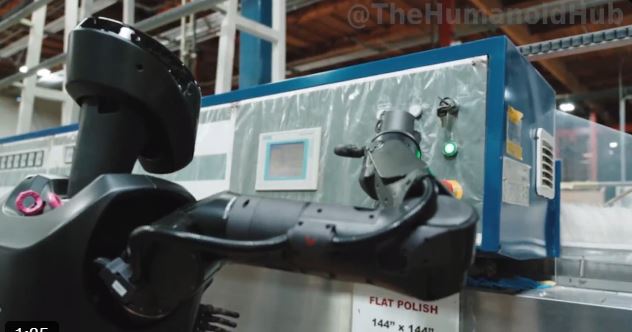SAN FRANCISCO, CA — The landscape of humanoid robotics in the United States has a new contender with the emergence of Foundation Robotics, which recently made headlines by acquiring Florida-based Boardwalk Robotics. The acquisition includes Boardwalk’s commercial humanoid robot, now rebranded as Phantom, previously known as Alex.
Foundation Robotics is steering away from the traditional focus on bipedal mobility, choosing instead to prioritize advanced manipulation capabilities. This strategic direction is aimed at addressing specific industrial needs where leg mobility is not a critical factor. Phantom, designed to be a modular robot, features a separate upper body from its legs, effectively functioning as a versatile workbench with autonomous mobile robot (AMR) capabilities. This design is tailored for tasks in industrial manufacturing and warehouse packaging, where precision and manipulation are key.
Also Read: New Zealand Overhauls Investor Visa Scheme to Lure Global Capital
The company has bold plans for Phantom; over 40 units are expected to be mass-produced this year, with an ambitious target of 20,000 units by 2027. This move signals Foundation Robotics’ commitment to scaling up their industrial robot solutions, potentially reshaping how tasks are automated in these sectors.
This development comes at a time when the humanoid robot market is expected to grow significantly, with experts predicting a market size of $38 billion by 2035. Foundation Robotics’ focus on practical, industry-specific applications could position it as a leader in a niche yet growing segment of robotics technology.
While the robotics industry often showcases robots with human-like mobility for public fascination, Foundation Robotics is demonstrating that in certain industrial contexts, the legs can be less important than the arms and hands. As robots like Phantom prove their worth in real-world applications, they might just redefine what we consider essential in humanoid robotics design.
Key Points:
New Player in Robotics: Foundation Robotics, based in the U.S., has entered the humanoid robotics market.
Acquisition: They’ve acquired Florida’s Boardwalk Robotics and its commercial robot, now called Phantom (formerly Alex).
Design Focus: Foundation Robotics prioritizes manipulation over mobility, designing Phantom for industrial applications where legs are not crucial.
Modular Design: Phantom features a modular setup, essentially acting as an advanced workbench with autonomous mobile capabilities.
Production Goals: The company aims to produce over 40 units this year, with a target of 20,000 units by 2027.
Market Influence: This focus might redefine the humanoid robotics market, expected to grow to $38 billion by 2035, by emphasizing practical industrial use.
Industry Shift: Their approach suggests a shift in robotics design philosophy, valuing functionality in industrial contexts over human-like features.



